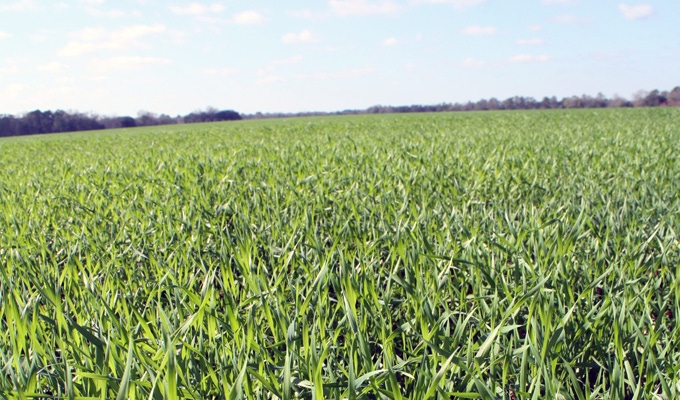September 1, 2015

Syngenta is now offering new winter wheat varieties targeted to the Eastern Corn Belt and Deep South.
“SY 547 is a new all-around performer as it has excelled in a broad range of yield trials in this area and offers excellent yield potential,” said Simon Phillips, key account manager, Syngenta. “All AgriPro genetics are fully tested for regional adaptation through extensive field trials including comprehensive testing of disease tolerance and agronomics.”
SY 547 offers an excellent combination of yield and test weight and is adaptable to most soil types. It offers very good stripe and leaf rust tolerance, as well as tolerance to Septoria leaf blotch. Early maturity makes it an excellent double crop option.
SY Cypress soft red winter wheat is a semi-dwarf variety with medium-short straw height. It develops very early in warmer seasons, and develops more slowly in a very cold year rather than racing to heading. SY Cypress is best suited for Louisiana, Georgia and eastern South Carolina.
“SY Cypress is an early-maturing variety and has shown moderate tolerance to leaf rust and powdery mildew,” said Simon Phillips, key account manager, Syngenta. “We work to identify lines in our germplasm with very good disease tolerance to the different pathogens in the southern region. We immediately incorporate these strong disease tolerance lines into the cross-breeding program to integrate the genes into our best lines for grain yield and quality.”
As winter wheat growers begin preparing for the upcoming planting season, Syngenta recommends implementing an integrated approach to crop management. Planting quality certified seed varieties and incorporating good planting practices, such as residue management, proper seeding rates and seed treatments, are critical to helping wheat start strong.
As winter wheat growers begin preparing for the upcoming planting season, Syngenta recommends implementing an integrated approach to crop management. Planting quality certified seed varieties and incorporating good planting practices, such as residue management, proper seeding rates and seed treatments, are critical to helping wheat start strong.
You May Also Like




